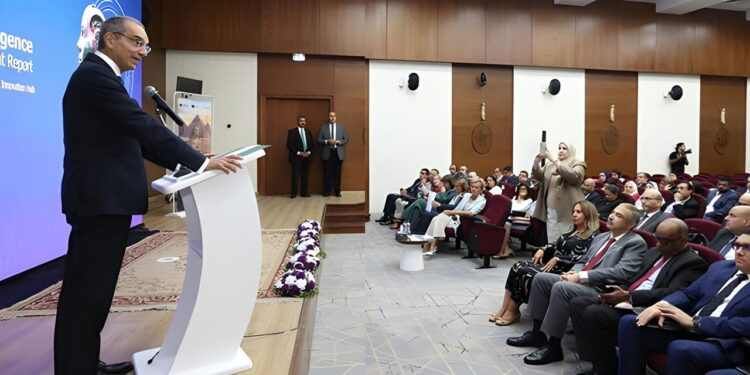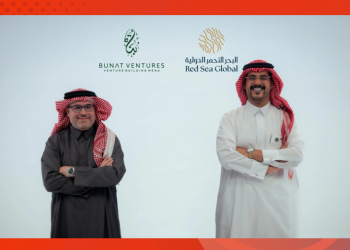Egypt just launched its AI Readiness Assessment Report, making it the first Arab nation to complete this comprehensive evaluation with UNESCO support. The report reveals how the country plans to boost AI’s contribution to GDP from current levels to 7.7% by 2030.
Egypt Leads Arab Region in AI Ethics Assessment
Communications and Information Technology Minister Amr Talaat unveiled the report at Creativa Innovation Hub in Giza on September 8, 2025. The assessment emerged from collaboration between Egypt’s Ministry of Communications and Information Technology, UNESCO’s Regional Office for Egypt and Sudan, with European Union funding.
This makes Egypt the first country in the Arab region to complete UNESCO’s Readiness Assessment Methodology (RAM). The framework evaluates nations across legal, policy, institutional, and technical dimensions to ensure responsible AI adoption.
Five Critical Pillars Shape Egypt’s AI Foundation
The report examined Egypt’s AI space through five essential areas. Legal and regulatory frameworks topped the list, assessing how current laws support responsible AI deployment. Social and cultural dimensions measured digital literacy levels and efforts to bridge the digital divide across Egyptian society.
Scientific and educational capabilities received scrutiny through research spending, development initiatives, and educational programs. Economic dimensions analyzed AI adoption in public and private sectors, plus market impact across production and service industries. Technical infrastructure evaluation rounded out the assessment, examining Egypt’s digital backbone readiness for AI acceleration.
Speech Recognition Hits 96% Accuracy in Justice Sector
Egypt’s practical AI achievements impressed UNESCO evaluators. The country developed a speech-to-text solution exceeding 96% accuracy, now deployed in the justice sector. Healthcare applications for early disease detection also caught international attention.
Minister Talaat highlighted the National AI Strategy’s six strategic pillars driving implementation. Governance initiatives include launching an open data policy and drafting legislative roadmaps for expanding AI applications. Data accessibility improved through Cloud First Policy adoption, making anonymized datasets available to researchers and innovators.
30,000 AI Professionals Target Set for 2030
Egypt’s ambitious workforce development goals impressed the assessment team. The country targets training 30,000 highly specialized AI engineers by 2030, expanding digital literacy programs especially for women in rural and urban areas.
The strategy emphasizes building societal awareness of AI benefits and risks. Cooperation with the Ministry of Education integrates AI into various educational stages, while diverse training programs target judges, lawyers, and other professionals.
Ultra-high computing capacity expansion forms the fourth pillar, providing computational resources not just for government entities but also startups and SMEs working in AI development.
Egypt Joins 70-Nation AI Ethics Network
UNESCO’s Readiness Assessment Methodology enables Egypt to participate in multilateral dialogue with over 70 countries using identical evaluation standards. This positions Egypt for enhanced global cooperation and knowledge sharing in responsible AI development.
Dr. Nuria Sanz, Director of UNESCO’s Regional Office for Egypt and Sudan, emphasized how the assessment “enriches Egypt’s national experience in implementing the second edition of its national AI strategy.” The methodology builds on UNESCO’s Recommendation on the Ethics of Artificial Intelligence, adopted unanimously by 193 member states in 2021.
Arabic Language AI Model Development Underway
Egypt’s National AI Strategy 2025-2030 includes developing a national Arabic language foundation model. This sovereign AI initiative will enable domain-specific applications across agriculture, healthcare, and legal sectors. Similar projects already launched in Qatar, Saudi Arabia, and the UAE demonstrate regional momentum toward localized AI solutions.
The 80-page strategy document targets creating 250+ AI startups alongside the professional development goals. ICT sector contribution to GDP should reach 7.7% by 2030, up from current levels, positioning Egypt as a strategic AI innovation hub connecting Africa, the Arab world, and global technology ecosystems.
European Union Funds Ethical AI Framework
The European Union’s financial support for Egypt’s AI readiness assessment demonstrates international commitment to responsible technology adoption. Ambassador Angelina Eichhorst, Head of the EU Delegation to Egypt and the League of Arab States, attended the launch ceremony alongside senior UN officials.
Ms. Lydia Brito, Acting Assistant Director-General of UNESCO for Social and Human Sciences, warned via video conference that “developments in AI technologies come with increased risks, and the absence of adequate governance frameworks leads to entrenching inequalities.” The report confirms Egypt’s commitment to building an ethical and inclusive AI system.
Report Recommendations Target Three Core Areas
The assessment’s findings focused recommendations on regulatory frameworks, institutional structures, and capacity building. These will integrate into Egypt’s second-phase National AI Strategy (2025-2030) implementation.
Regulatory improvements include drafting legislative roadmaps to accommodate expanding AI applications and studying government AI procurement provisions to limit algorithmic bias. Institutional structure enhancements emphasize safe and responsible AI system deployment across government agencies.
National consultations during report preparation engaged stakeholders across government, private sector, academia, civil society, and young entrepreneurs. This comprehensive approach ensures broad-based support for implementation strategies.












